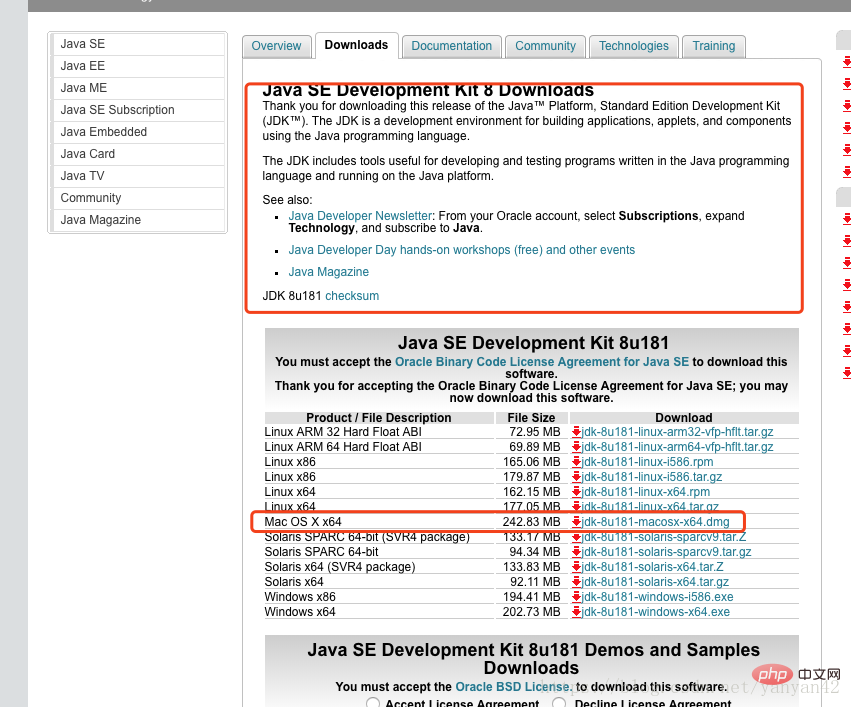Heim >Backend-Entwicklung >PHP-Problem >So installieren Sie die Zookeeper-Erweiterung für PHP
So installieren Sie die Zookeeper-Erweiterung für PHP
- 藏色散人Original
- 2021-03-08 10:31:042533Durchsuche
So installieren Sie die Zookeeper-Erweiterung: Laden Sie zuerst Zookeeper herunter und geben Sie dann das Installationsverzeichnis an. Installieren Sie dann Zookeeper.

Die Betriebsumgebung dieses Artikels: Windows 7-System, PHP7.1, Dell G3-Computer.
ZooKeeper ist ein verteilter Open-Source-Koordinierungsdienst für verteilte Anwendungen. Es handelt sich um eine Open-Source-Implementierung von Googles Chubby und eine wichtige Komponente von Hadoop und Hbase. Es handelt sich um eine Software, die konsistente Dienste für verteilte Anwendungen bereitstellt. Zu den bereitgestellten Funktionen gehören: Konfigurationswartung, Domänennamendienste, verteilte Synchronisierung, Gruppendienste usw.
Das Ziel von ZooKeeper besteht darin, komplexe und fehleranfällige Schlüsseldienste zu kapseln und Benutzern einfache und benutzerfreundliche Schnittstellen sowie ein System mit effizienter Leistung und stabilen Funktionen bereitzustellen.
Um zookeeper in PHP zu verwenden, müssen Sie zuerst die PHP-Zookeeper-Erweiterung installieren. Um die PHP-Zookeeper-Erweiterung zu installieren, müssen Sie zuerst zookeeper installieren
Laden Sie hier die neueste stabile Version herunter
http://mirror .bit.edu.cn/Apache/zookeeper/stable/
cd /download
wget http://mirror.bit.edu.cn/apache/zookeeper/stable/zookeeper-3.4.12.tar.gz // Dies ist ein bereits installiertes Tool, das wir noch selbst kompilieren und installieren müssen, da es später bei der Installation von PHP-Erweiterungen verwendet wird
tar -zxvf zookeeper-3.4.12.tar.gz
cd zookeeper-3.4.12/ src /c/
./configure --prefix=/usr/local/zookeeper //Geben Sie das Installationsverzeichnis an
make && make install
Die Installation ist abgeschlossen
2 Installieren Sie die PHP-Zookeeper-Erweiterung unter http:/ / Finden Sie in pecl.php.net/package/zookeeper
cd /download
wget http://pecl.php.net/get/zookeeper-0.6.2.tgz
tar -zxvf zookeeper-0.6.2. tgz
cd zookeeper-0.6.2
./configure --with-libzookeeper-dir=/usr/local/zookeeper //Um Abhängigkeiten anzugeben
make && make install
Configure php.ini
extension=" / usr/local/Cellar/php/7.2.6/pecl/20170718/zookeeper.so"
Starten Sie einfach php-fpm neu.
【Empfehlung: „
PHP-Video-Tutorial“】3. Installieren Sie jdk, bevor Sie zookeeper starten. Die bereits installierten können ignoriert werden
unter http://www.oracle.com/technetwork/java/javase/downloads /jdk8 Laden Sie
 in -downloads-2133151.html herunter und installieren Sie es dann auf eine narrensichere Weise, auf die ich hier nicht näher eingehen werde
in -downloads-2133151.html herunter und installieren Sie es dann auf eine narrensichere Weise, auf die ich hier nicht näher eingehen werde
4. Starten Sie zookeeper
cd /download/zookeeper-3.4. 12/bin
cd ../confcp zoo_sample.cfg zoo .cfgKopieren Sie die Datei
 5. PHP-Codetest
5. PHP-Codetest
Testcode
<?php
/**
*
*/
class zookeeperDemo
{
private $zookeeper;
function __construct($address)
{
$this->zookeeper = new Zookeeper($address);
}
/*
* get
*/
public function get($path)
{
if (!$this->zookeeper->exists($path)) {
return null;
}
return $this->zookeeper->get($path);
}
public function getChildren($path) {
if (strlen($path) > 1 && preg_match('@/$@', $path)) {
// remove trailing /
$path = substr($path, 0, -1);
}
return $this->zookeeper->getChildren($path);
}
/*
* set 值
*
*
*/
public function set($path, $value)
{
if (!$this->zookeeper->exists($path)) {
//创建节点
$this->makePath($path);
} else {
$this->zookeeper->set($path,$value);
}
}
/*
* 创建路径
*/
private function makePath($path, $value='')
{
$parts = explode('/', $path);
$parts = array_filter($parts);//过滤空值
$subPath = '';
while (count($parts) > 1) {
$subPath .= '/' . array_shift($parts);//数组第一个元素弹出数组
if (!$this->zookeeper->exists($subpath)) {
$this->makeNode($subPath, $value);
}
}
}
/*
* 创建节点
*
*/
private function makeNode($path, $value, array $params = array())
{
if (empty($params)) {
$params = [
[
'perms' => Zookeeper::PERM_ALL,
'scheme' => 'world',
'id' => 'anyone'
]
];
}
return $this->zookeeper->create($path, $value, $params);
}
/*
* 删除
**/
public function deleteNode($path)
{
if (!$this->zookeeper->exists($path)) {
return null;
} else {
return $this->zookeeper->delete($path);
}
}
}
$zk = new zookeeperDemo('localhost:2181');
//var_dump($zk->get('/zookeeper'));
var_dump($zk->getChildren('/foo'));
//var_dump($zk->deleteNode("/foo"));
?>
测试代码2、
<?php
/**
* PHP Zookeeper
*
* PHP Version 5.3
*
* The PHP License, version 3.01
*
* @category Libraries
* @package PHP-Zookeeper
* @author Lorenzo Alberton <l.alberton@quipo.it>
* @copyright 2012 PHP Group
* @license http://www.php.net/license The PHP License, version 3.01
* @link https://github.com/andreiz/php-zookeeper
*/
/**
* Example interaction with the PHP Zookeeper extension
*
* @category Libraries
* @package PHP-Zookeeper
* @author Lorenzo Alberton <l.alberton@quipo.it>
* @copyright 2012 PHP Group
* @license http://www.php.net/license The PHP License, version 3.01
* @link https://github.com/andreiz/php-zookeeper
*/
class Zookeeper_Example
{
/**
* @var Zookeeper
*/
private $zookeeper;
/**
* @var Callback container
*/
private $callback = array();
/**
* Constructor
*
* @param string $address CSV list of host:port values (e.g. "host1:2181,host2:2181")
*/
public function __construct($address) {
$this->zookeeper = new Zookeeper($address);
}
/**
* Set a node to a value. If the node doesn't exist yet, it is created.
* Existing values of the node are overwritten
*
* @param string $path The path to the node
* @param mixed $value The new value for the node
*
* @return mixed previous value if set, or null
*/
public function set($path, $value) {
if (!$this->zookeeper->exists($path)) {
$this->makePath($path);
$this->makeNode($path, $value);
} else {
$this->zookeeper->set($path, $value);
}
}
/**
* Equivalent of "mkdir -p" on ZooKeeper
*
* @param string $path The path to the node
* @param string $value The value to assign to each new node along the path
*
* @return bool
*/
public function makePath($path, $value = '') {
$parts = explode('/', $path);
$parts = array_filter($parts);
$subpath = '';
while (count($parts) > 1) {
$subpath .= '/' . array_shift($parts);
if (!$this->zookeeper->exists($subpath)) {
$this->makeNode($subpath, $value);
}
}
}
/**
* Create a node on ZooKeeper at the given path
*
* @param string $path The path to the node
* @param string $value The value to assign to the new node
* @param array $params Optional parameters for the Zookeeper node.
* By default, a public node is created
*
* @return string the path to the newly created node or null on failure
*/
public function makeNode($path, $value, array $params = array()) {
if (empty($params)) {
$params = array(
array(
'perms' => Zookeeper::PERM_ALL,
'scheme' => 'world',
'id' => 'anyone',
)
);
}
return $this->zookeeper->create($path, $value, $params);
}
/**
* Get the value for the node
*
* @param string $path the path to the node
*
* @return string|null
*/
public function get($path) {
if (!$this->zookeeper->exists($path)) {
return null;
}
return $this->zookeeper->get($path);
}
/**
* List the children of the given path, i.e. the name of the directories
* within the current node, if any
*
* @param string $path the path to the node
*
* @return array the subpaths within the given node
*/
public function getChildren($path) {
if (strlen($path) > 1 && preg_match('@/$@', $path)) {
// remove trailing /
$path = substr($path, 0, -1);
}
return $this->zookeeper->getChildren($path);
}
/**
* Delete the node if it does not have any children
*
* @param string $path the path to the node
*
* @return true if node is deleted else null
*/
public function deleteNode($path)
{
if(!$this->zookeeper->exists($path))
{
return null;
}
else
{
return $this->zookeeper->delete($path);
}
}
/**
* Wath a given path
* @param string $path the path to node
* @param callable $callback callback function
* @return string|null
*/
public function watch($path, $callback)
{
if (!is_callable($callback)) {
return null;
}
if ($this->zookeeper->exists($path)) {
if (!isset($this->callback[$path])) {
$this->callback[$path] = array();
}
if (!in_array($callback, $this->callback[$path])) {
$this->callback[$path][] = $callback;
return $this->zookeeper->get($path, array($this, 'watchCallback'));
}
}
}
/**
* Wath event callback warper
* @param int $event_type
* @param int $stat
* @param string $path
* @return the return of the callback or null
*/
public function watchCallback($event_type, $stat, $path)
{
if (!isset($this->callback[$path])) {
return null;
}
foreach ($this->callback[$path] as $callback) {
$this->zookeeper->get($path, array($this, 'watchCallback'));
return call_user_func($callback);
}
}
/**
* Delete watch callback on a node, delete all callback when $callback is null
* @param string $path
* @param callable $callback
* @return boolean|NULL
*/
public function cancelWatch($path, $callback = null)
{
if (isset($this->callback[$path])) {
if (empty($callback)) {
unset($this->callback[$path]);
$this->zookeeper->get($path); //reset the callback
return true;
} else {
$key = array_search($callback, $this->callback[$path]);
if ($key !== false) {
unset($this->callback[$path][$key]);
return true;
} else {
return null;
}
}
} else {
return null;
}
}
}
$zk = new Zookeeper_Example('localhost:2181');
// var_dump($zk->get('/'));
// var_dump($zk->getChildren('/'));
// var_dump($zk->set('/test', 'abc'));
// var_dump($zk->get('/test'));
// var_dump($zk->getChildren('/'));
// var_dump($zk->set('/foo/001', 'bar1'));
// var_dump($zk->set('/foo/002', 'bar2'));
// var_dump($zk->get('/'));
// var_dump($zk->getChildren('/'));
// var_dump($zk->getChildren('/foo'));
//watch example 一旦/test节点的值被改变,就会调用一次callback
function callback() {
echo "in watch callback\n";
}
//$zk->set('/test', 1);
$ret = $zk->watch('/test', 'callback');
//$zk->set('/test', 2);//在终端执行
while (true) {
sleep(1);
}
/*
class ZookeeperDemo extends Zookeeper {
public function watcher( $i, $type, $key ) {
echo "Insider Watcher\n";
// Watcher gets consumed so we need to set a new one
//ZooKeeper提供了可以绑定在znode的监视器。如果监视器发现znode发生变化,该service会立即通知所有相关的客户端。这就是PH//P脚本如何知道变化的。Zookeeper::get方法的第二个参数是回调函数。当触发事件时,监视器会被消费掉,所以我们需要在回调函
//数中再次设置监视器。
$this->get( '/test', array($this, 'watcher' ) );
}
}
$zoo = new ZookeeperDemo('127.0.0.1:2181');
$zoo->get( '/test', array($zoo, 'watcher' ) );
while( true ) {
echo '.';
sleep(2);
}
*/
/*
// $zc = new Zookeeper();
// $zc->connect('127.0.0.1:2181');
// var_dump($zc->get('/zookeeper'));
// exit;
*/
?>
Code-Referenzlink:
https://github.com /php-zookeeper/php-zookeeper/blob/master/examples/ Zookeeper_Example.php
Das obige ist der detaillierte Inhalt vonSo installieren Sie die Zookeeper-Erweiterung für PHP. Für weitere Informationen folgen Sie bitte anderen verwandten Artikeln auf der PHP chinesischen Website!

